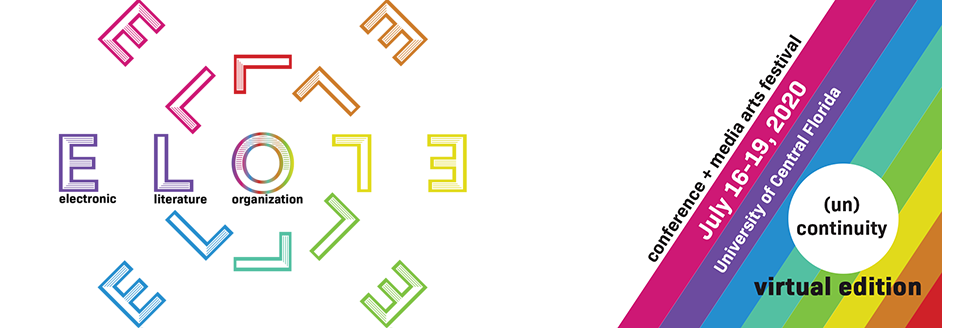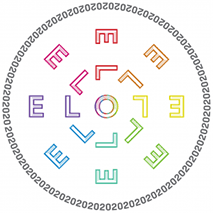Loading...
Submission Type
Conference Talk - Individual
Abstract
Cosmonet is an indirect branching narrative game for PC / mobile game that explores fundamental relationships between character, plot, and player agency by presenting choices that drive the action of the story through character building, rather than through dialogue or activity. By reversing the traditional relationship between character and action in games, Cosmonet suggests a new way to think about interactive narrative design.
The protagonist of Cosmonet is Lena, who uses her computer to do her job, communicate with the people that she cares about, and waste time by filling out online personality quizzes. The quizzes are modeled after Buzzfeed personality quizzes, which promise to sort the answerer into one of several categories based on their answers to simple questions. This model of personality quiz, which has a long legacy in lifestyle magazines like Cosmo and pseudo-scientific metrics like Meiers-Briggs, satisfies a human psychological need to be sorted. Being sorted provides a comforting sense of belonging and known relationship to other people; it also taps into cultural zeitgeists and allows people to easily share information about themselves on social media platforms.
In Cosmonet, the quizzes are the players point of interaction with the narrative system. The player provides answers to the quiz questions, which is interpreted by the game as defining a set of personality traits for the character. As the player provides Lena's answers to the quiz questions, the game tracks their answers along two axis: independent thought and optimism. This defines Lena's attitude and how she approaches the problems she faces, and results in her choosing different lines of dialogue and actions.
In typical branching narrative systems, the player makes choices about the character's dialogue (what you want the character to say next) or activity (what you want the character to do next). Often, these games will present the character with some degree of latitude as to their underlying personality, allowing the player to define the character through these actions. Sometimes the game system will recognize and even reward choosing actions that align with an underlying consistency in character personality. Cosmonet, however, views the relationship between character and action in the reverse. The player makes choices that, rather than being active, are intrinsic; choices that directly define the character's personality. Then the character acts in a way that expresses the personality they have been given. In this game, the player's agency over the character's action is indirect, mediated by the personality traits that are conferred by their answers to the quizzes.
The companion piece to Cosmonet, From Ivan, continues to explore the ideas of indirect narrative control and character personality driving plot. In From Ivan, the protagonist character, Ivan, works as a human resources manager in an office. Again, the player's point of interaction with the narrative system is not to choose Ivan's direct actions, but rather to select between options that represent different styles of communication that Ivan might employ when taking those actions. In this way, From Ivan expands on the original conceit presented in Cosmonet.
Character Building as Narrative Design in Cosmonet and From Ivan
Cosmonet is an indirect branching narrative game for PC / mobile game that explores fundamental relationships between character, plot, and player agency by presenting choices that drive the action of the story through character building, rather than through dialogue or activity. By reversing the traditional relationship between character and action in games, Cosmonet suggests a new way to think about interactive narrative design.
The protagonist of Cosmonet is Lena, who uses her computer to do her job, communicate with the people that she cares about, and waste time by filling out online personality quizzes. The quizzes are modeled after Buzzfeed personality quizzes, which promise to sort the answerer into one of several categories based on their answers to simple questions. This model of personality quiz, which has a long legacy in lifestyle magazines like Cosmo and pseudo-scientific metrics like Meiers-Briggs, satisfies a human psychological need to be sorted. Being sorted provides a comforting sense of belonging and known relationship to other people; it also taps into cultural zeitgeists and allows people to easily share information about themselves on social media platforms.
In Cosmonet, the quizzes are the players point of interaction with the narrative system. The player provides answers to the quiz questions, which is interpreted by the game as defining a set of personality traits for the character. As the player provides Lena's answers to the quiz questions, the game tracks their answers along two axis: independent thought and optimism. This defines Lena's attitude and how she approaches the problems she faces, and results in her choosing different lines of dialogue and actions.
In typical branching narrative systems, the player makes choices about the character's dialogue (what you want the character to say next) or activity (what you want the character to do next). Often, these games will present the character with some degree of latitude as to their underlying personality, allowing the player to define the character through these actions. Sometimes the game system will recognize and even reward choosing actions that align with an underlying consistency in character personality. Cosmonet, however, views the relationship between character and action in the reverse. The player makes choices that, rather than being active, are intrinsic; choices that directly define the character's personality. Then the character acts in a way that expresses the personality they have been given. In this game, the player's agency over the character's action is indirect, mediated by the personality traits that are conferred by their answers to the quizzes.
The companion piece to Cosmonet, From Ivan, continues to explore the ideas of indirect narrative control and character personality driving plot. In From Ivan, the protagonist character, Ivan, works as a human resources manager in an office. Again, the player's point of interaction with the narrative system is not to choose Ivan's direct actions, but rather to select between options that represent different styles of communication that Ivan might employ when taking those actions. In this way, From Ivan expands on the original conceit presented in Cosmonet.




Bio
Sean Bloom has worked as a game designer and technology lead in the University of Southern California's Interactive Media and Games Division since 2011. His work for the division includes Mission: Admission, a time-management game about preparing for college, Chrono Cards, a card game about historical thinking and the causes of WWI, and Life Underground, a digital dark ride about discovering and identifying microscopic life forms. He regularly teaches undergraduate and graduate courses on game design fundamentals, experimental game design, polishing and publishing games, and game production. He has spoken at the Game Developers Conference, the IndieCade Festival, the Meaningful Play conference, the Games for Change Festival, the Digital Media and Learning conference, and the Digital Games Research Association conference.
Sean also produces games as an independent game developer, including tabletop games, digital games, and location-based installation projects. His work, which has been featured at the Independent Games Festival, IndieCade, Games for Change, E3, and GDC, includes Application Crunch, a card game about the college application process, Spectre, a narrative platformer about memory and dementia, and BOSS Box, a modular AR-powered escape room. Previously, he worked as a programmer at the Institute for Creative Technology, examining the therapeutic potential of virtual worlds. He has served as an organizer and juror for the IndieCade Festival and the USC Games Expo. His focus is on narrative design and motivating social interaction through game mechanics.
Martzi Campos is an interactive artist. Her work focuses on combing her installation art background with digital technology and interactive design to create magical experiences. She has a BFA from Rhode Island School of Design with a focus on Installation art, and a MFA from the University of Southern California in Interactive Media and Games. Her games and art have been featured at IndieCade, Experimental Games Workshop, SIGGRAPH, and the Hammer Gallery among others.